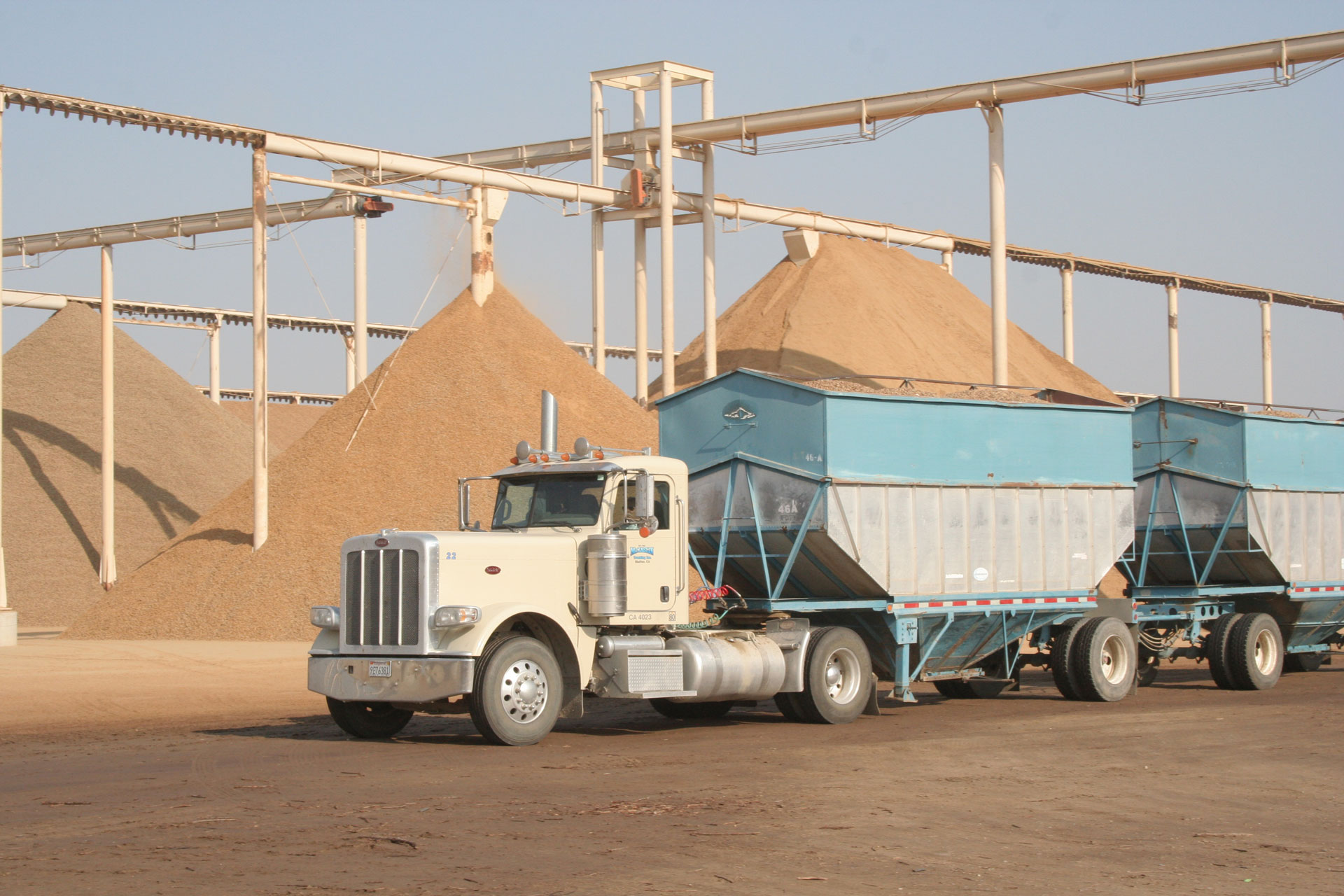
In January 2021, Governor Gavin Newsom signed Executive Order N-79-20, which banned the sale of light-, medium- and heavy-duty combustion engines in the transportation sector by 2035. While 2035 is still over a decade away, his administration and representative government agencies have wasted no time in developing strategies to expedite that commitment.
With the completion of the California Air Resources Board’s (CARB) Truck and Bus Regulation ending in January 2023, many seasoned agricultural trucks on the road today will no longer be allowed to operate in the state. Fleets throughout the state will be reduced and replaced with 2010 or newer heavy-duty diesel equipment. While many businesses and industries look ahead to strategize how they will be able to move goods and products in the near future, CARB has already begun developing and workshopping new regulations pertaining to the 2010 and newer equipment.
Advanced Clean Truck Regulation
The first significant regulation to impact the trucking industry begins with the Advanced Clean Truck Regulation. The intent of this regulation is to evaluate larger, heavy-duty fleets and see where opportunities for electrification could occur and benefit the fleet. The initial requirements of this regulation are focused on the manufacturing sector of the trucking industry. CARB aims to require that “…manufacturers who certify Class 2b-8 chassis or complete vehicles with combustion engines would be required to zero-emission trucks as an increasing percentage of their annual sales from 2024-2035”. (CARB ACT Fact Sheet).
The regulation would require percentages of total manufacturer sales made in the state of California be in zero-emission equipment. While many have seen the high-profile demonstration of Tesla’s new battery-powered Semi model, there are a surprising number of other manufacturers with different models of electric trucks as well. CARB cites that by 2023 more than 71 different manufacturers will be marketing zero-emission trucks, and the projected number of truck models is set to increase from 468 current models on the market to over 600 by 2023. CARB is not solely focused on Class 8 trucks; the regulation ties in several medium-duty rated vehicles such as vans and three-quarter-ton pickup trucks like the F350 and Ram 2500. While having the technology is a great first step, this doesn’t address the significant costs associated with purchasing one of these pieces of equipment as well as the electric infrastructure costs that are required when equipment like this is purchased. Additionally, equipment testing in agricultural settings is typically not included in a manufacturer’s research.
The second step in this regulation is the requirement of larger businesses to report their fleets into a newly developed CARB database. Large entities are defined by CARB in this regulation as companies with over $50 million in annual receipts as well as companies that own, operate or dispatch 50 or more vehicles within the state of California. The purpose of the reporting component is so CARB can evaluate electrification opportunities within applicable fleets. This broad applicability of “Larger Entities” brings in numerous agricultural and food processing facilities, and opens the door for requiring these same businesses to upgrade their fleets a second time after the completion of the Truck and Bus Rule.
Inspection and Maintenance Program
While the Advanced Clean Trucks regulation applies to larger businesses, CARB is developing updates to their Heavy-Duty Vehicle Inspection and Maintenance Program (HDVIMP) which would apply to every heavy-duty vehicle owner. Currently, trucks that are still operating under the existing Truck and Bus Regulation are required to have a Periodic Smoke Inspection (PSIP) annually.
These inspections measure engine opacity with the engine running, and if an engine is found to out of compliance with the truck’s engine model year opacity limitation, then the vehicle must have the necessary repairs done in order to operate the equipment. Oftentimes, if a fleet owner is locked out from updating their Truck and Bus fleet online, CARB staff will ask for the most recent PSIP inspection in order to verify mileage. The proposed updates to the HDVIMP program will still incorporate PSIP testing for some model year-specific vehicles (2010-13), but CARB is looking to take a more creative approach to ensure equipment and their emission control systems are functioning properly.
CARB intends to take advantage of the technological advancements made by the equipment manufacturing industry, specifically the on-board diagnostic (OBD) systems that are tied directly into the engine. CARB is proposing to require fleet/vehicle owners to take their equipment to a licensed repair shop twice a year to have their trucks evaluated. From there, the repair shop would connect their computer with the OBD system within the truck. The repair shop would evaluate all emission control systems within the heavy-duty truck as well as monitor the opacity of the exhaust coming out of the truck as it is in operation. If any of the emission control systems show any sign of failure, a notice will be issued to the vehicle owner requesting immediate repair.

Fleet/vehicle owners are given 90 days to repair the equipment and bring it back to the repair shop to have the truck re-evaluated. Failure to repair and re-test the equipment would result in CARB notifying DMV of the truck’s failure and a temporary registration hold being placed on the equipment. Similar to tactics used in the most recent years of the Truck and Bus Regulation, CARB is working directly with the DMV in order to ensure compliance through registration holds.
Owner operators would have to maintain their compliance with the mandatory inspections as well as keep a copy of their certificate on file. Vehicles would also need to be entered into a separate CARB database. Additionally, a $30 compliance fee would be included in a truck owner’s DMV Registration Renewal invoice. CARB is also looking for businesses to act as the agencies’ enforcement inspectors, asking that any business that contracts any trucking work ask to see a compliance certificate with the HDVIMP before beginning any work, and if one cannot be supplied, that the contracted trucking business not be allowed to continue working at the site.
Through the workshop process, many agricultural associations have raised the alarm that agricultural trucking works slightly different than overall goods movement. The seasonality of agricultural goods movement and harvest support warrants some consideration from CARB staff, and truckers in the agricultural sector should be identified differently than the intended target for both regulations. Western Agricultural Processors Association along with several other agricultural organizations and associations has been active in supplying comments and working directly with staff to try and make both of these proposed regulatory changes more workable for the industry. Stay tuned for more updates!










